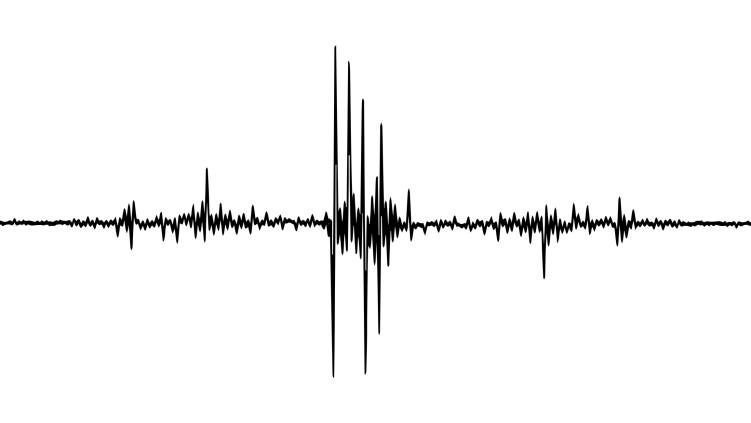Dusted off an anecdote from September 2018 about particle physics, financial markets, quantum entanglement, and how opportunities often appear as mysterious phenomena (see below). I take the late summer off from writing, to squeeze in some reading. Recharge. Hoping the same for you. All the very best, Eric
Week-in-Review: Mon: Ukraine launched more drone attacks on Russia over the weekend, Jeff Currie to leave GS, Fed’s Williams said rates may come down next year with inflation / Fed’s Bowman warned more hikes “will likely be needed” to fully restore price stability, Indonesia GDP 5.17% (5.00%e), China FX Reserves $3.204t ($3.203t e), Japan leading index 108.9 as exp, Germany IP -1.7% (-0.2%e), US cons credit $17.847b ($13b exp), S&P +0.9%; Tue: Chinese trade data disappoints / impts -12.4% (-5.6%e) / expts -14.5% (-13.2%e) / balance $80.6b ($70b exp), Italy surprise 40% windfall tax on banks spooks European markets, Moody’s cuts 10 US banks on increased funding costs, FTX’s former co-CEO in talks to plead guilty, China’s Country Garden missed Monday coupon payment, Fed’s Harker says rates could be on hold even if that’s below the Dot plot, Japan household spending -4.2% (-3.8%e) / real cash earnings -1.6% (-0.9%e), Hungary CPI 17.6% (17.7%e), US NFIB 91.9 (91.3e), US Trade Balance -$65.5b (-$65.0b e), S&P -0.4%; Wed: China CPI -0.3% (-0.4%e) / PPI -4.4% (-4%e), PBOC defends CNY weakness by fixing much lower than mkt expectations (30th consecutive stronger than forecasted fix), European gas spikes on fears of strikes at Australian LNG export facilities, Maui suffers from extreme wildfires (55 dead / thousands missing), Italy backtracks slightly on windfall tax on banks, Rice prices hit 15y high, Saudi Arabia agrees to normalizing relations with Israel, Biden limits investment in some Chinese tech, S. Korea unemp 2.8% (2.7%e), Brazil Retail Sales 1.3% (0.7%e), Mexico CPI 4.79% as exp / Core 6.64% (6.66%e), Russia CPI 4.30% as exp, S&P -0.7%; Thu: US CPI 3.2% (3.3%e) / Core 4.7% as exp, RBI on hold as exp (3rd meeting) / tried to be dovish while acknowledging upcoming infl pressures due to food, Mexico CB unch as exp, Fed’s Daly says CPI ‘is not a data point that says the victory is ours’, China lifted travel bans to slew of countries (including US), Kim Jong Un discusses plans to strike S. Korea ahead of US/SK joint military drills, leading presidential candidate in Ecuador assassinated (2w before elections), Iran to release 4 American hostages in exch for unidentified detained Iranians, Japan PPI 3.6% (3.5%e), Turkey IP 0.6% (-3.0%e), Turkey unemp 9.6% (9.5%p), S. Africa mfg prod 5.5% (3.0%e), US init claims 248k (230k exp), US real avg hourly earnings 1.1% (1.3%p), S&P flat; Fri: US PPI 0.8% (0.7%e) / Core PPI 2.4% (2.3%e), China announced 1T CNY plan to tackle local debt problems (size of mkt est 66T), Biden blasts the Chinese economy as a ‘ticking time bomb’, Russia lands space craft on moon – first trip in almost 50y, France unemp 7.2% (7.1%e), UK IP 0.7% (-1.1%e) / mfg prod 3.1% (0.3%e), UK 2Q GDP 0.4% (0.2%e), China agg financing 528.2b (1100b exp) / M2 10.7% (11.0%e), Brazil IPCA infl 3.99% (3.94%e), Mexico IP 3.7% (2.9%e), India IP 3.7% (5.0%e), Russia GDP 4.9% (3.9%e), US UofM sentiment 71.2 as exp / 1y infl exp 3.3% (3.5%e) / 5-10y infl exp 2.9% (3%e), S&P -0.1%
Weekly Close: S&P 500 -0.3% and VIX -2.26 at +14.84. Nikkei +0.9%, Shanghai -3.0%, Euro Stoxx -0.0%, Bovespa -1.2%, MSCI World -0.5%, and MSCI Emerging -2.0%. USD rose +3.4% vs Russia, +2.7% vs South Africa, +2.3% vs Yen, +1.8% vs Sweden, +1.1% vs Australia, +0.9% vs China, +0.8% vs Chile, +0.7% vs Brazil, +0.5% vs Euro, +0.5% vs Canada, +0.4% vs Sterling, +0.3% vs Indonesia, +0.2% vs Turkey, and flat vs India. USD fell -0.9% vs Bitcoin, -0.6% vs Ethereum, and -0.4% vs Mexico. Gold -1.6%, Silver -4.1%, Oil +0.5%, Copper -3.3%, Iron Ore -2.9%, Corn -2.1%. 10yr Breakevens (EU -5bps at 2.39%, US flat at 2.37%, JP -7bps at 1.10%, and UK flat at 3.80%). 2yr Notes +13bps at 4.90% and 10yr Notes +12bps at 4.16%.
Year-to-Date Equities (high to low): Argentina +46.5% priced in US dollars (+137.6% priced in pesos), Greece +41.5% priced in US dollars (+38.4% priced in euros), Hungary +36.7% in dollars (+28.1% in forint), Poland +32.5% in dollars (+22.7% in zloty), NASDAQ +30.4% in dollars, Ireland +26.9% (+24.2%), Mexico +26% (+9.9%), Italy +21.9% (+19.3%), Denmark +18.9% (+16.6%), Chile +17.7% (+18.9%), Spain +17.2% (+14.6%), Euro Stoxx 50 +16.4% (+13.9%), S&P 500 +16.3% in dollars, Germany +16.2% (+13.7%), Brazil +16.2% (+7.6%), Czech Republic +16% (+13.1%), France +15.9% (+13.4%), MSCI World +14.2% in dollars, Netherlands +13.5% (+11.1%), Taiwan +13.4% (+17.4%), Japan +12.9% (+24.4%), Korea +10% (+15.9%), Russell +9.3% in dollars, Saudi Arabia +9.3% (+9%), Colombia +8.8% (-10.8%), Switzerland +8.5% (+3.3%), Russia +8.4% (+46.5%), India +7% (+7.3%), Canada +5.9% (+5.3%), UK +5.9% (+1%), Sweden +3.6% (+7.8%), Portugal +3.3% (+1%), Austria +2.9% (+0.7%), Belgium +1.8% (-0.4%), Indonesia +1.7% (+0.4%), Singapore +0.3% (+1.3%), Norway +0.2% (+6.4%), Israel -0.1% (+5.5%), Australia -0.7% (+4.3%), China -1.6% (+3.2%), New Zealand -2.9% (+3.2%), Turkey -3.1% (+40%), UAE -3.3% (-3.2%), HK -3.8% (-3.6%), Venezuela -3.9% (+71.4%), Philippines -4% (-2.4%), South Africa -4% (+6.7%), Malaysia -6.5% (-2.6%), Finland -8.3% (-10.3%), Thailand -9.3% (-8%).
Anecdote (Sep 2018): “I’m fortunate to live in a time where the political system allows my kind of work,” said the Physicist. “Historically, it’s not always so.” Below us particles raced around CERN’s 27km subterranean track, held in precise formation, accelerating toward collision, obliteration, observation. We discussed magic, mysteries, the sublime wonder all around. “It’s incredible that we’ve been able to learn so much about nature, and that the language of mathematics turns out to be so effective in describing it,” he said. I smiled, having never quite considered that fact. “We’re now trying to produce a substance found throughout the universe that interacts with gravity but not light,” he explained. “But so far, no success.” The existence of Dark Matter was first hypothesized in the 1930s, we’ve searched ever since. It accounts for 95% of the Universe’s mass. The Physicist asked me about markets, intrigued by their movements, mechanics. There are parallels with quantum theory. Investor perceptions impact markets, which in turn changes investor perceptions in a reflexive loop that grows highly unpredictable in the extreme. The greatest opportunities in markets often reveal themselves first as mysterious phenomena. When markets move in opposition to general principles, it often means that something fundamental is changing. Reality is always changing. Our job as investors is to identify shifts early and adjust our frameworks accordingly. I asked the Physicist to explain the mystery that confounded Einstein and every physicist since: Quantum Entanglement. “I can understand the equations that describe it. But I’m intuitively mystified by the phenomenon,” he admitted. “In my field of work, I’m astonished often. And each time, I’m reminded that what we know about reality fits within perhaps 5% of all there is. And when you know so little about something so vast, it’s impossible to be certain whether what you believe you know is even reality.”
Good luck out there,
Eric Peters
Chief Investment Officer
One River Asset Management
Disclaimer: All characters and events contained herein are entirely fictional. Even those things that appear based on real people and actual events are products of the author’s imagination. Any similarity is merely coincidental. The numbers are unreliable. The statistics too. Consequently, this message does not contain any investment recommendation, advice, or solicitation of any sort for any product, fund or service. The views expressed are strictly those of the author, even if often times they are not actually views held by the author, or directly contradict those views genuinely held by the author. And the views may certainly differ from those of any firm or person that the author may advise, converse with, or otherwise be associated with. Lastly, any inappropriate language, innuendo or dark humor contained herein is not specifically intended to offend the reader. And besides, nothing could possibly be more offensive than the real-life actions of the inept policy makers, corrupt elected leaders and short, paranoid dictators who infest our little planet. Yet we suffer their indignities every day. Oh yeah, past performance is not indicative of future returns.





